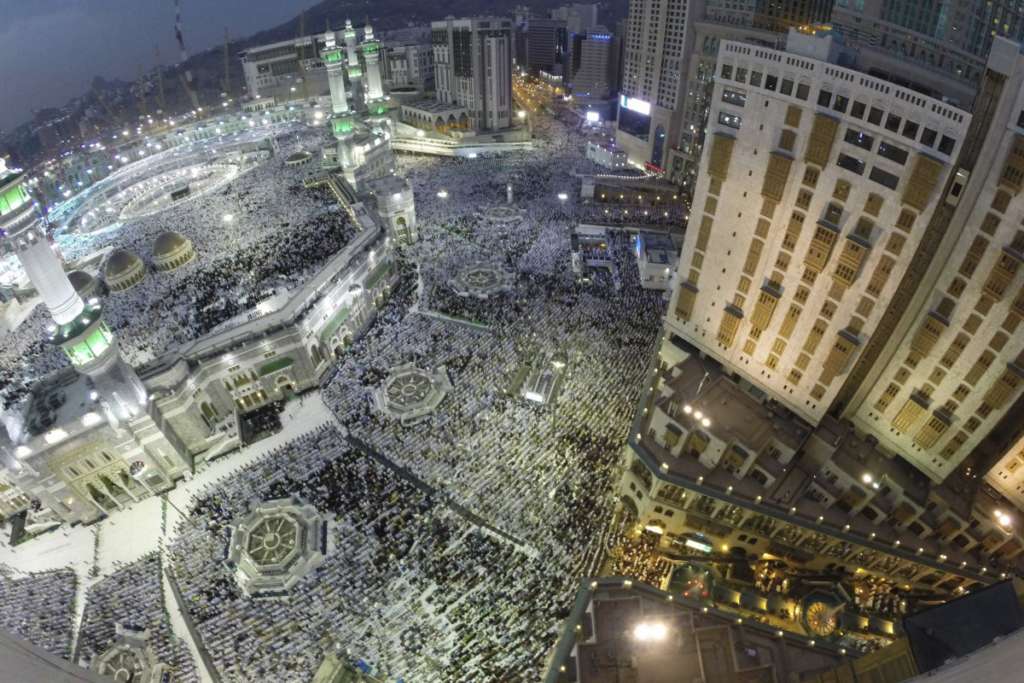London, Baghdad- Saudi Foreign Affairs Minister Adel Al-Jubeir has accused the Iranian regime of “politicizing” the Holy Hajj to get away from its internal problems.
He added that while Saudi Arabia expressed its readiness to welcome Iranian pilgrims, Tehran chose instead to complicate the matter by politicizing the pilgrimage.
Speaking to reporters on Monday during a closed meeting at the Saudi Embassy in London, the Saudi foreign affairs minister said that latest comments by Iranian Supreme Leader Ali Khamanei on Hajj were a mere attempt to shift Iranian people’s attention from their government’s continuous failures and its decision to prevent Iranians from performing the holy pilgrimage.
Jubeir stressed that the Kingdom was keen on welcoming pilgrims from around the world, but the Iranian government refused to cooperate in travel and visa arrangements. He noted that such arrangements were coordinated between the Kingdom and all other countries to guarantee a safe Hajj season for more than three million Muslims annually.
The Saudi foreign minister also said that Iran was using more aggressive policies since the adoption of the nuclear deal and ruled out any possibility to reach an agreement with the Persian state if the latter continued to spread sectarian violence in the region.
Meanwhile, a high-ranking Iraqi official told Asharq al-Awsat newspaper that his country has stopped some Iranian members from travelling to Saudi Arabia to perform the Hajj, as they have secretly infiltrated an Iraqi group of pilgrims with fake passports.
Speaking on condition of anonymity, the Iraqi official said: “We have received specific information on the presence of members from the Lebanese and Iraqi Hezbollah militias, Saraya Al-Khorassani and the Iranian-led Al-Abbas militias within Iraqi pilgrim groups with fake passports and names; we have prevented them from leaving Iraq.”
The Iraqi official added that upon investigation with those members, they admitted to have been assigned by Iran to provoke problems and unrest during the Hajj season in order to harm Iraq’s relations with Saudi Arabia.
In remarks earlier this week, Khamenei criticized Saudi Arabia and called on the Muslim world to challenge the country’s control of Muslim pilgrimage sites.
The Saudi foreign affairs minister went on to say that Iran has been isolated from the Islamic world as all Islamic states have cut their relations with the Persian country.
He added that Iran’s interference in Iraq’s internal affairs has led to the spread of sectarian violence and the infiltration of ISIS in the country.
“As long as Iran continues to influence Iraq’s sectarian policies, which have generated sectarian violence through the presence of Iranian militias on Iraqi territories, threats against Iraqi Sunnis and diplomats will persist,” Jubeir said.
He added: “The sectarian crisis in Iraq cannot be resolved without the implementation of the reforms adopted in 2014.”
He noted that the implementation of those reforms will forge national unity and crush ISIS.
On the Yemeni crisis, Jubeir said that the Saudi-led alliance in Yemen came in response to calls made by the Yemeni government to restore its legitimacy, in the wake of Houthi rebels’ refusal to reach a political solution and implement U.N. Security Council Resolution 2216.
Regarding Syria, asked to comment on the failure of the United States and Russia to agree on a ceasefire, Jubeir said he would not describe it as a failure but as a work in progress.
“There is a possibility of arriving at an understanding in the next 24 hours or so that will test Bashar al-Assad’s seriousness to comply,” he said.
